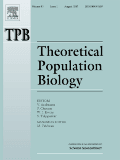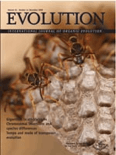
GENETICS SELECTION EVOLUTION
Scope & Guideline
Pioneering Research in Genetic Evolution
Introduction
Aims and Scopes
- Genomic Selection and Prediction:
The journal emphasizes the development and application of genomic selection methodologies, including genomic prediction models that improve the accuracy of breeding values across various species. - Breeding for Resilience and Adaptation:
Research often focuses on identifying genetic traits that contribute to resilience against environmental stressors and diseases, enabling better adaptation of livestock to changing conditions. - Analysis of Genetic Diversity and Population Structure:
Papers frequently explore genetic diversity within and between breeds, assessing how population structure influences breeding strategies and genetic improvement. - Genome-Wide Association Studies (GWAS):
A significant focus on GWAS allows researchers to identify genetic loci associated with important traits, facilitating marker-assisted selection in breeding programs. - Integration of Multi-Omics Data:
The journal highlights studies that integrate genomic data with other omics technologies (e.g., transcriptomics, metabolomics) to provide a holistic view of the genetic basis of complex traits in livestock. - Genotype-by-Environment Interactions:
Research on how different genotypes respond to varying environmental conditions is prevalent, allowing for more informed breeding decisions.
Trending and Emerging
- Microbiome and Host Interaction Studies:
Emerging research investigates the relationship between host genetics and microbiome composition, exploring how these interactions can influence traits such as feed efficiency and health. - Climate Adaptation and Resilience Genetics:
There is a rising trend in studies focused on the genetic basis of traits that promote resilience to climate change, indicating a growing recognition of the importance of adaptability in livestock. - Pangenomics and Structural Variants:
Research on pangenomics, which encompasses the genetic diversity within and across species, is gaining traction as it provides insights into structural variants affecting important traits. - Application of AI and Machine Learning in Genomics:
The integration of artificial intelligence and machine learning techniques in genomic prediction and analysis is increasingly prominent, reflecting the need for sophisticated data analysis methods. - Ethics and Sustainability in Genetic Selection:
A growing emphasis on ethical considerations and sustainable practices in genetic selection is emerging, as researchers seek to balance genetic improvement with animal welfare and environmental impact.
Declining or Waning
- Traditional Breeding Methods:
As genomic technologies advance, there is a noticeable decline in publications focusing solely on traditional breeding methods, as researchers increasingly turn to genomic approaches. - Single Trait Focus:
There is a waning interest in studies that analyze single traits in isolation, as the complexity of traits and the benefits of multi-trait analyses become more recognized. - Non-Genomic Factors in Breeding:
Research that emphasizes non-genomic factors affecting breeding outcomes appears to be decreasing, likely due to the growing emphasis on genomic data in breeding decisions.
Similar Journals

Evolution Letters
Unlocking the mysteries of life through open access research.Evolution Letters is a premier Open Access journal published by Oxford University Press, dedicated to advancing research in the interdisciplinary fields of Ecology, Evolution, and Genetics. Since its launch in 2017, this journal has rapidly established itself as a leading platform for high-quality research and innovative studies, as reflected by its impressive Q1 quartile rankings in both Ecology, Evolution, Behavior and Systematics and Genetics for 2023. With a remarkable Scopus ranking placing it in the top 3% in its categories, Evolution Letters serves as a vital resource for scholars and practitioners seeking to understand the complexities of evolutionary processes and genetic developments. The journal’s commitment to Open Access ensures that groundbreaking research is freely available to the global scientific community, fostering collaboration, discovery, and progress in these critical fields of study.

INDIAN JOURNAL OF GENETICS AND PLANT BREEDING
Cultivating Knowledge in Genetics and Plant BreedingIndian Journal of Genetics and Plant Breeding, ISSN 0019-5200, published by the Indian Society of Genetics and Plant Breeding, serves as a pivotal platform for research in the fields of genetics and plant breeding. Based in India, this journal provides valuable insights into the latest developments, methodologies, and findings that drive innovation and enhance the agricultural landscape. With a convergence period extending from 2008 to 2024, this journal maintains a strong focus on advancing our understanding of genetic mechanisms in plants, contributing significantly to both academic circles and practical applications in agriculture. Although presently ranked in the fourth quartile for Genetics and the third quartile for Plant Science, the journal aims to elevate its impact factor and enhance visibility among research communities through rigorous peer-reviewed articles. Published in both print and online formats, the journal is accessible to a global audience and emphasizes the importance of open communication in fostering scientific advancements. Researchers, professionals, and students alike will find this journal an essential resource for staying abreast of trends and breakthroughs in genetic research and plant breeding.

THEORETICAL POPULATION BIOLOGY
Illuminating the Path of Population DynamicsTHEORETICAL POPULATION BIOLOGY is a leading academic journal published by Academic Press Inc. Elsevier Science, dedicated to advancing the understanding of population biology through theoretical frameworks and models. With an ISSN of 0040-5809 and an E-ISSN of 1096-0325, this journal has been a cornerstone in its field since its inception in 1970. Recognized for its significant contributions to the study of ecological and evolutionary dynamics, it currently holds a Q2 ranking in the Ecology, Evolution, Behavior and Systematics category as per the 2023 category quartiles. Researchers and professionals alike appreciate its role in disseminating impactful findings, as reflected in its percentile ranking of the 51st in Scopus for the Agricultural and Biological Sciences field. While the journal is not open access, it remains a vital resource for those looking to deepen their knowledge and research in theoretical approaches to population biology, making it an essential read for students, aspiring scientists, and veteran researchers seeking to engage with cutting-edge theoretical developments.

Czech Journal of Genetics and Plant Breeding
Advancing genetic innovation for a sustainable future.Czech Journal of Genetics and Plant Breeding is a premier academic journal dedicated to advancing the fields of genetics and plant science. Published by the esteemed Czech Academy Agricultural Sciences, this journal has been available as an Open Access resource since 2002, ensuring that essential research is freely accessible to a global audience. With an ISSN of 1212-1975 and an E-ISSN of 1805-9325, it continues to disseminate high-quality studies and findings from the vibrant scientific community in the Czech Republic and beyond. The journal operates within the Scopus ranks, securing 279th place in the category of Plant Science and 282nd in Genetics, reflecting its commitment to scholarly rigor. The Journal's objectives focus on exploring innovations in genetic research and plant breeding methodologies, offering valuable insights that foster collaboration among researchers, professionals, and students alike. As the journal converges from 2007 to 2024, it remains a vital publication for those seeking to stay abreast of developments in genetic diversity, crop improvement, and sustainable agriculture practices.

Annual Review of Genomics and Human Genetics
Synthesis of Knowledge: The Pinnacle of Genomic ResearchAnnual Review of Genomics and Human Genetics, published by ANNUAL REVIEWS, represents a pivotal platform in the field of Genetics and Molecular Biology. With an impressive impact factor reflecting its high citation rate and scholarly influence, this journal is renowned for its authoritative reviews that synthesize current research across genomics and human genetics. Highlighting its Q1 category rankings in both Genetics and Clinical Genetics, as well as its ranking within the top tiers of Biochemistry and Genetics, the journal stands out as a leading resource for researchers, professionals, and students eager to stay abreast of groundbreaking developments in these rapidly evolving fields. While not currently an open access journal, its rigorous peer-review process ensures the highest standards of scientific integrity. Researchers can access comprehensive reviews that delve into both fundamental genetics concepts and cutting-edge discoveries, making it an essential resource for advancing understanding in human genetics and its applications.

SILVAE GENETICA
Advancing tree genetics for a sustainable future.SILVAE GENETICA is a dedicated academic journal in the field of forestry and genetics, published by SCIENDO. Based in Germany, this journal has been a key platform for advancing knowledge in tree genetics and management since its inception. The journal has demonstrated its commitment to quality research with its categorization in the Q3 quartile for Forestry and Q4 for Genetics as of 2023, indicating its relevance and contribution to the respective fields. With an ISSN of 0037-5349 and an E-ISSN of 2509-8934, SILVAE GENETICA covers a diverse range of topics related to the genetic analysis and improvement of forests, employing innovative techniques beneficial for both researchers and practitioners. The journal is indexed within Scopus, ranking #76 in its category for Agricultural and Biological Sciences and #281 for Genetics. While it does not offer Open Access, the importance of the journal's contributions to forestry science and genetic studies cannot be overstated, making it an essential resource for researchers, professionals, and students alike.

Frontiers in Genetics
Connecting Researchers to the Future of GeneticsFrontiers in Genetics is a premier academic journal dedicated to advancing the field of genetics through high-quality, peer-reviewed research. Published by FRONTIERS MEDIA SA in Switzerland since 2010, this Open Access journal provides a platform for researchers and practitioners to disseminate innovative findings across various subfields, including clinical genetics and molecular medicine. With a notable emphasis on interdisciplinary approaches, the journal holds a strong position in the academic landscape, achieving Q2 rankings in key categories such as Genetics and Molecular Medicine in 2023. Not only does Frontiers in Genetics contribute to the scholarly dialogue by publishing impactful studies, but it also promotes accessibility to vital research, ensuring that knowledge is available to a global audience. This journal is a vital resource for researchers, professionals, and students looking to stay at the forefront of genetic discoveries and their applications, reflective of its engagement with contemporary challenges in genetics and healthcare.

MOLECULAR BREEDING
Unlocking the Future of Crop Resilience and GeneticsMOLECULAR BREEDING is a prestigious journal published by Springer, dedicated to advancing the field of agronomy, plant science, and biotechnology through innovative research contributions. With an impressive ISSN of 1380-3743 and E-ISSN 1572-9788, this journal has continuously served the scientific community since its inception in 1995. Operating from the Netherlands, MOLECULAR BREEDING is recognized for its high impact factor and status in the Q1 quartile for both Agronomy and Crop Science and Plant Science in the latest 2023 metrics, highlighting its influential role in these domains. With strong Scopus rankings reflecting its position within the top percentiles of various related fields—including a notable 81st percentile in Plant Science—this journal is essential for researchers, professionals, and students striving to understand and innovate in molecular genetics and breeding techniques. Although it does not provide open access, its rigorous peer-review process ensures that published articles maintain the highest standards and contribute significantly to the scientific discourse. The journal’s diverse scope encompasses significant advancements in molecular biology and genetics, ultimately supporting the global objectives of sustainable agriculture and enhanced crop resilience.

ZUCHTUNGSKUNDE
Exploring breakthroughs in animal welfare and productivity.ZUCHTUNGSKUNDE is a distinguished journal published by EUGEN ULMER GMBH CO that has been advancing the field of animal science and zoology since its inception in 1977. With its ISSN 0044-5401 and E-ISSN 1867-4518, this journal provides a vital platform for researchers, professionals, and students in the realms of animal genetics, breeding, and veterinary studies. Although currently categorized in the fourth quartile for both Animal Science and Zoology and Food Animals, ZUCHTUNGSKUNDE serves as an essential resource for sharing innovative research findings and methodologies. Located in Stuttgart, Germany, the journal is strategically positioned to foster collaboration within the European agricultural and biological sciences community. Researchers are encouraged to contribute their insights to enhance the understanding of breeding practices and improve animal welfare and productivity. Despite its challenges, ZUCHTUNGSKUNDE remains committed to addressing key issues within its scope, paving the way for future advancements in animal science.

EVOLUTION
Innovating Understanding in Ecology and GeneticsEVOLUTION is a premier academic journal published by Oxford University Press, dedicated to the dynamic fields of evolutionary biology, ecology, and genetics. Since its inception in 1948, the journal has established itself as a leading platform for innovative research and critical analyses, achieving a remarkable impact factor that reflects its significance in the scientific community. EVOLUTION is consistently ranked in the Q1 category across key disciplines, including Agricultural and Biological Sciences, Ecology, and Genetics, making it a vital resource for researchers and practitioners alike. With an impressive Scopus ranking placing it in the 79th percentile for Agricultural and Biological Sciences and the 78th percentile for Ecology and Evolution, the journal is essential reading for those seeking to stay at the forefront of evolutionary studies. Although the journal does not currently offer open access options, it remains a crucial vehicle for disseminating cutting-edge research that influences the understanding of biological processes and their implications in diverse ecosystems. The commitment to rigor and excellence ensures that EVOLUTION continues to shape the discourse in evolutionary science and related fields.